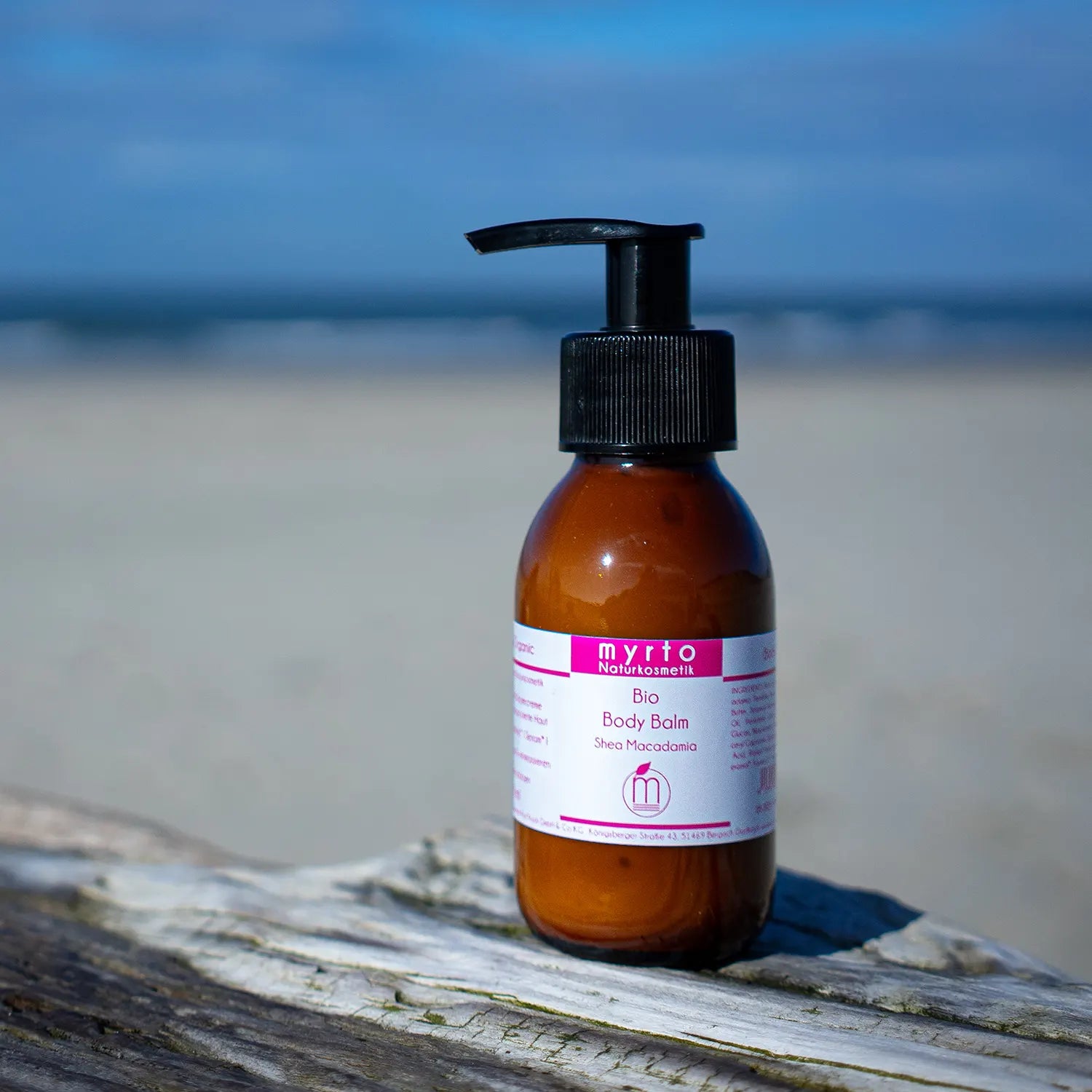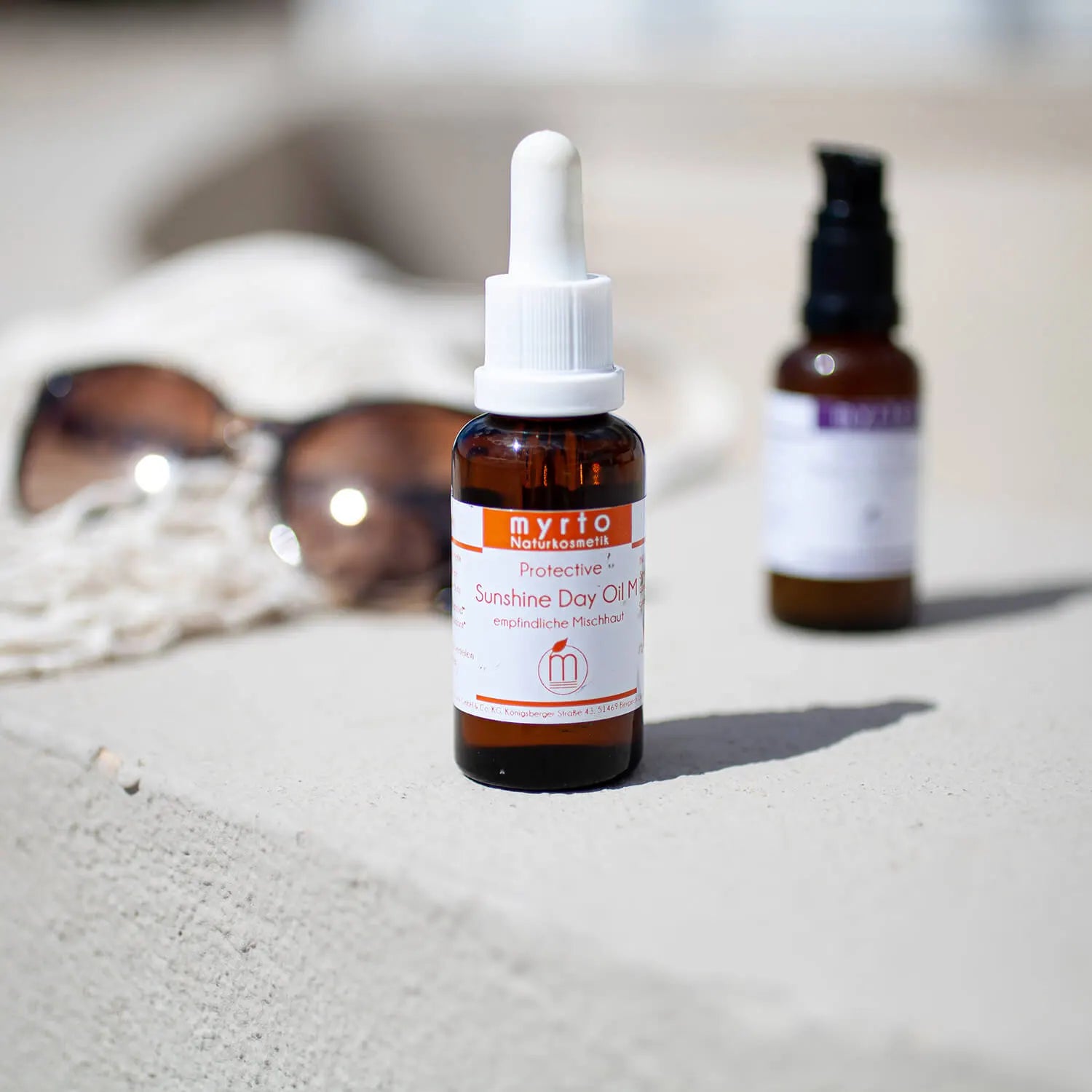
How safe is mineral sunscreen really?
Especially at the beginning of summer, when the skin is not yet sufficiently accustomed to the intense sunlight, the question of effective and safe UV protection arises. It is not only when you are at the seaside or in the mountains, but also on your balcony at home or during your lunch break in a street café that you can quickly burn your face. What is needed is a natural sunscreen with a high sun protection factor that causes as little skin irritation as possible. It should not contain any unnecessary, controversial ingredients and should also be suitable for sensitive skin. Natural cosmetics manufacturers rely primarily on mineral sunscreen.
How does mineral sunscreen work?
Mineral sun protection is based on mineral UV filters such as titanium dioxide and zinc oxide. While organic UV filters are of petrochemical origin, penetrate the skin and absorb UV radiation, mineral UV filters work purely physically. The particles form a barrier on the surface of the skin. They reflect and scatter sunlight so that the radiation cannot penetrate the skin.
What are the benefits of mineral sunscreen?
Mineral sunscreen protects immediately after application. There is no waiting time required for it to take effect, as is the case with chemical sunscreen. Furthermore, mineral UV filters offer broad-spectrum protection when combined correctly, meaning they protect against both UVA and UVB rays. Mineral sunscreen is generally well tolerated by the skin - even for people with highly sensitive skin or allergies.
myrto sun protection
Can mineral sunscreen be harmful to your health?
-
The body's own production of vitamin D is hindered
Like chemical sunscreen filters, mineral UV protection on the skin hinders the body's own production of vitamin D. Even a chemical or mineral SPF 20 blocks around 95-99% of the production of vitamin D. A deficiency in this vital vitamin is one of the biggest health problems of our time. Studies show that vitamin D not only improves our protection against colds and depression, but also against diabetes, colon cancer, osteoporosis and heart attacks. Therefore, you should never use mineral or chemical sunscreen products on a daily basis. -
Suspected genetic damage caused by titanium dioxide
Titanium dioxide (INCI declaration: Titanium Dioxide or CI77891 or E171) is, alongside zinc oxide, a commonly used mineral UV protection agent that is particularly effective in the UVB range. This pigment is widely used in many industrially manufactured products such as paints, varnishes, plastics, but also in sunscreens, cosmetics, toothpastes or medicines. There are health concerns when titanium dioxide is absorbed into the body.
According to an assessment by the European Food Safety Authority (EFSA) in 2021, there is a suspicion of genetic damage caused by titanium dioxide if the particles enter the body. Titanium dioxide is not considered safe for consumers, animals or the environment. A risk to aquatic organisms from titanium dioxide released from products cannot be ruled out.
Due to the potential health risk for consumers, titanium dioxide has been banned in food throughout the EU since 2022. However, titanium dioxide is still fully permitted for medicinal products and cosmetics, such as toothpastes or sunscreens
-
Health risks from nanoparticles
According to the EU Cosmetics Regulation, mineral sunscreens may also contain nanoparticles. Unfortunately, even some natural cosmetics manufacturers use nano filters for sun protection. By definition, nanoparticles are tiny particles in the size range of 1 nm (nanometer) to 100 nm. Mineral nanoparticles in sunscreens have the advantage that they can be spread more easily on the skin. They also counteract the unpleasant, visually disturbing "whitening" of classic mineral sunscreens based on titanium dioxide or zinc oxide. - What is the problem with nano-sized UV filters? Due to their tiny size, nanoparticles can penetrate the skin barrier more easily and then accumulate in the body, for example in organs or lymph nodes. Nanoparticles can easily enter the body, especially in sensitive baby and child skin, with a weakened skin barrier or previously damaged skin, e.g. due to sunburn.
- Researchers have observed in animal experiments that nanoparticles can cause inflammation and organ damage in the body. Titanium dioxide in particular is considered problematic. In 2017, a French study in animal experiments confirmed a connection between nano-titanium dioxide and severe intestinal inflammation and even colon cancer.
- So far, little is known about the long-term effects of nanoparticles in the body. There is no scientific evidence that nanoparticles are harmless in the body.
- How do you recognize nanoparticles in your cosmetics? According to the EU Cosmetics Regulation, tiny particles under 100 nanometers must be declared as “nano” in the ingredients list.
- If you are looking for a mineral sunscreen without nanoparticles, pay attention to the declaration of ingredients. If the label “Nano” is behind the filter, the sunscreen contains tiny particles under 100 nanometers according to the EU Cosmetics Regulation.
Conclusion
At myrto, we prefer a purely plant-based UV sun protection product based on organic karanja oil in combination with powerful antioxidants such as astaxanthin to protect against harmful infrared radiation for daily use.
If you want to increase the plant-based sun protection as needed, we recommend a sunscreen with zinc oxide without nanoparticles.





